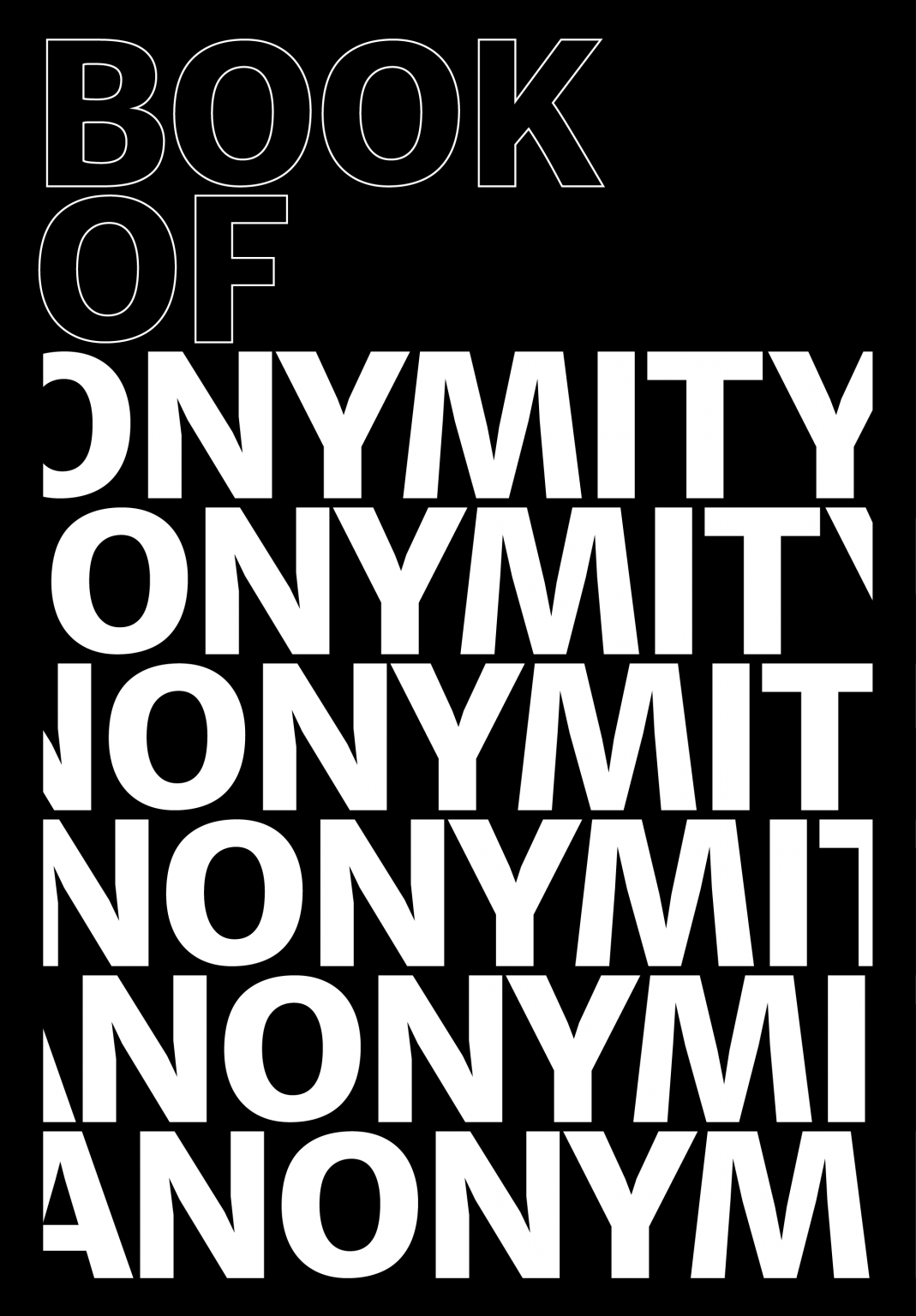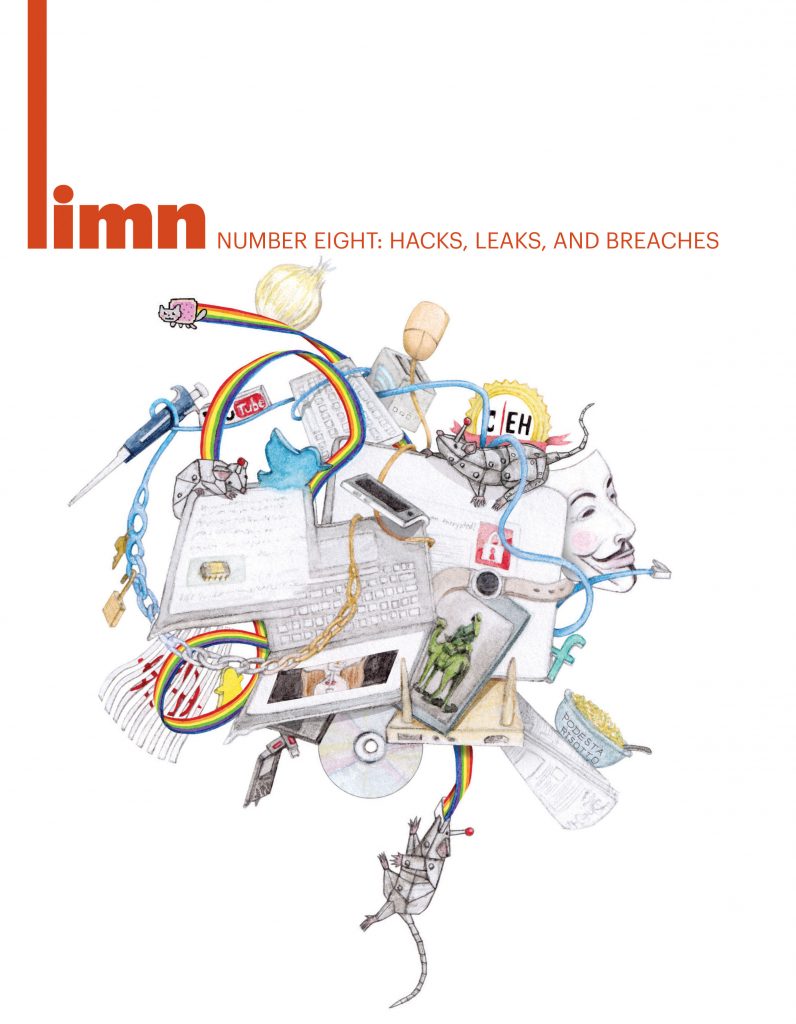Anon Collective (ed.): Book of Anonymity (2021)
Filed under book | Tags: · anonymity, anonymous, art and science, data, digital culture, personhood, privacy, security, surveillance, technology

“Anonymity is highly contested, marking the limits of civil liberties and legality. Digital technologies of communication, identification, and surveillance put anonymity to the test. They challenge how anonymity can be achieved, and dismantled. Everyday digital practices and claims for transparency shape the ways in which anonymity is desired, done, and undone.
The Book of Anonymity includes contributions by artists, anthropologists, sociologists, media scholars, and art historians. It features ethnographic research, conceptual work, and artistic practices conducted in France, Germany, India, Iran, Switzerland, the UK, and the US. From police to hacking cultures, from Bitcoin to sperm donation, from Yik-Yak to Amazon and IKEA, from DNA to Big Data — thirty essays address how the reconfiguration of anonymity transforms our concepts of privacy, property, self, kin, addiction, currency, and labor.” (from back cover)
Contributors: Anon, Götz Bachmann, Dwaipayan Banerjee, Solon Barocas, Aram Bartholl, Amelie Baumann, Vadim Bernard, Paula Bialski, Andreas Broeckmann, Heath Bunting, Martin De Bie, Bureau d’études, Jacob Copeman, Abigail Curlew, Stéphane Degoutin, Simon Farid, Parastou Forouhar, Randi Heinrichs, Anna Henke, Michi Knecht, knowbotiq, Gertraud Koch, Julien McHardy, Helen Nissenbaum, Gerald Raunig, RYBN.ORG, Daniela Silvestrin, Thorsten Thiel, Transformella, Daniël de Zeeuw, Nils Zurawski.
Publisher Punctum Books, March 2021
Creative Commons BY-NC-SA 4.0 International license
ISBN 9781953035301
484 pages
HT coco
PDF (11 MB)
Comment (0)Limn, 8: Hacks, Leaks, and Breaches (2017)
Filed under magazine | Tags: · activism, hacking, hacktivism, information warfare, leaking, politics, security

“Hardly a day passes without news of a major hack, leak, or breach; with the scale of computer use and reliance on digital forms of data, no sector of society is immune to these data dumps, infiltrations, and floods. From the surveillance of dissidents to the hacking of elections to the weaponization of memes, hacking is changing in character, and it is changing the world. In this issue we ask whether hacking and hacks have crossed a techno-political threshold: how are hacks, leaks and breaches transforming our world, creating new collectives, and changing our understanding of security and politics. How has the relationship of hacking and hackers to their own collectives, to governments, and to the tools and techniques been transformed recently? What does it mean to be a hacker these days, and how does it differ from engineering, from “cyber-security,” from information warfare or from hacktivism?”
Contributors: Claudio Guanieri, Nils Gilman, Jesse Goldhammer, Steve Weber, Finn Brunton, Matthew Jones, Molly Sauter, Rebecca Slayton, Matthew Goerzen, Adam Fish, Luca Follis, Mustafa Al-Bassam, Sarah Tochetti, Paula Bialski, E. Gabriella Coleman, Robert Tynes, Philip Di Salvo, Sarah Myers West, Ashley Gorham, Joan Donovan, Goetz Bachmann, Tor Ekeland, David Murakami-Wood, Kim Zetter. With science fiction by Cory Doctorow.
Edited by E. Gabriella Coleman and Christopher M. Kelty
Published Feb-Mar 2017
Creative Commons BY-SA 3.0 Unported License
HTML (updated on 2019-7-8)
Comment (0)Addie Wagenknecht, et al.: Deep Lab (2014)
Filed under book | Tags: · art, cyberfeminism, digital culture, feminism, internet, media infrastructure, privacy, security, surveillance, technology, web

“Deep Lab book is a compilation of reflections on digital culture, the post-Snowden Internet, and cyberfeminism. Created in five days by a dozen women, it represents the capstone to Deep Lab, a congress of cyberfeminist researchers, organized by Frank-Ratchye STUDIO Fellow Addie Wagenknecht to examine how the themes of privacy, security, surveillance, anonymity, and large-scale data aggregation are problematized in the arts, culture and society.
During the second week of December 2014, the Deep Lab participants—a group of internationally acclaimed new-media artists, information designers, data scientists, software engineers, hackers, writers, journalists and theoreticians—gathered to engage in critical assessments of contemporary digital culture. They worked collaboratively at the STUDIO in an accelerated pressure project, blending aspects of a booksprint, hackathon, dugnad, charrette, and a micro-conference. The outcomes of this effort include the visualizations, software, reflections and manifestos compiled in this book; an album of ten lecture presentations, the Deep Lab Lecture Series; and a documentary film featuring interviews with the Deep Lab participants.”
By Addie Wagenknecht, Allison Burtch, Claire L. Evans, Denise Caruso, Harlo Holmes, Ingrid Burrington, Jillian C. York, Jen Lowe, Kate Crawford, Lindsay Howard, Lorrie Faith Cranor & CUPS, Maddy Varner, Maral Pourkazemi, and Runa A. Sandvik.
Publisher Deep Lab and Frank-Ratchye STUDIO for Creative Inquiry at Carnegie Mellon University, Dec 2014
Creative Commons BY-NC-SA 4.0 License
ISBN 978-1-312-77551-0
234 pages
PDF, PDF (109 MB, updated on 2018-4-14)
Deep Lab Lectures Series (10 videos, Dec 2014)
Documentary (18 min)

